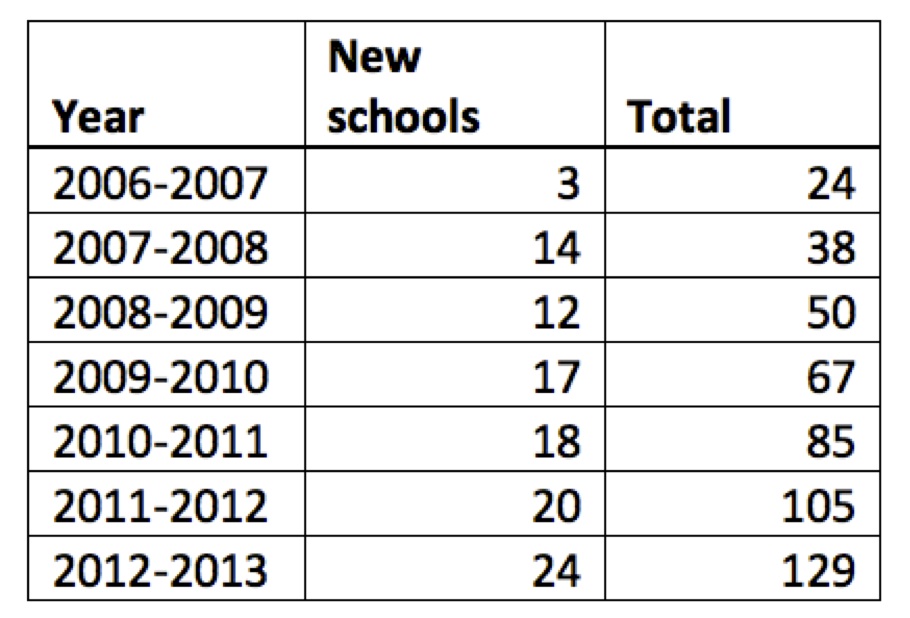Mandarin Immersion Schools: Where We Stand in 2013
 Reposted from Mandarin Immersion Parents Council (by Beth Weise)
Reposted from Mandarin Immersion Parents Council (by Beth Weise)
As educators from across the nation meet in Boston at the National Chinese Language Conference this weekend it seemed a good time to look at the current landscape of Mandarin immersion schools in the United States.
I keep a spreadsheet of all the programs I’m aware of on the Mandarin Immersion Parents Council blog, which I update whenever someone emails me with a new school or program. I posted numbers early in the school year and afterwards got several updates and corrections, which are now incorporated into the list.
This week I’ve been crunching numbers and here’s where we seem to be as of April 2013. The numbers I’m working from include schools that are currently open and seven which are scheduled to open in the 2013-2014 school year. There are most likely more coming next year but these are the ones that I’m aware of.
A whopping 24 new Mandarin immersion schools opened in the United States in the 2012-2013 school year, the largest number yet. The year before it was 20, the year before that 18.
In fact, growth has been explosive since 2007.
Things stayed somewhat steady, with a few programs opening every year or so and then beginning in 2005 it took off, with five that year and four the next. For the nation, it looks like this:The first Mandarin immersion school in the nation, San Francisco’s Chinese American International School, opened in 1981. It wasn’t until 1991 with the opening of Pacific Rim International School in Emeryville, Calif., that a second appeared. In 1996 they were joined by two more, Potomac Elementary in Potomac, Maryland, the nation’s first public Mandarin immersion program, and the private International School of the Peninsula in Palo Alto, Calif.
Here are the new schools that started this year, 2012-2013:
Click here for a chart of new schools that started this year and more on the subject.



